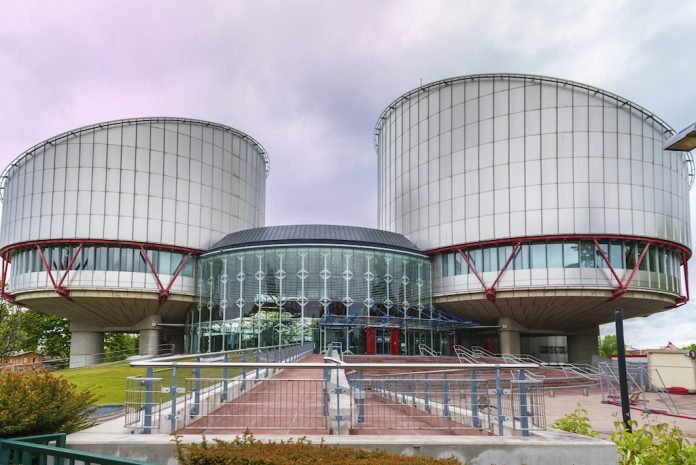The European Court of Human Rights (ECtHR) has said the rights of a civil servant who was fired in a purge carried out by the government after a failed 2016 coup in Turkey were violated, Turkish Minute reported.
The decision was the first on a petition filed by a victim of the massive government purge in Turkey.
The court, which announced its verdict on Tuesday, unanimously ruled that Turkey violated the right to a fair trial and the right to respect for private and family life, Article 6 and Article 8 of the European Convention on Human Rights, respectively, of Hamit Pişkin, who was purged from his job at the Ankara Development Agency, a public-law entity responsible for coordinating the regional activities of various public and private bodies. Pişkin’s contract at the agency was terminated on July 26, 2016 based on a government decree, known as a KHK in Turkish, issued on July 23, 2016.
Following the abortive putsch, the Turkish government declared a state of emergency and carried out a massive purge of state institutions under the pretext of an anti-coup fight. Over 130,000 public servants, including 4,156 judges and prosecutors as well as 20,610 members of the armed forces were summarily removed from their jobs for alleged membership in or relationships with “terrorist organizations” by emergency decree-laws subject to neither judicial nor parliamentary scrutiny.
links to the Gülen movement, a faith based group inspired by US based Turkish cleric Fethullah Gülen.
On Aug. 14, Pişkin lodged an appeal with the Ankara Labor Court seeking the annulment of the decision to terminate his employment contract. He submitted, among other things, that his dismissal had lacked any valid reason and that it was abusive as well as null and void. He further claimed compensation for his dismissal. On Oct. 25, 2016 the court dismissed Pişkin’s administrative appeal. He then submitted an appeal based on points of law, but his appeals were dismissed. He finally lodged an individual appeal with Turkey’s Constitutional Court, which declared his complaints inadmissible on May 10, 2018.
On Sept. 5, 2018 the Ankara Public Prosecutor’s Office rendered a discontinuance decision on Pişkin’s case on the grounds of insufficient evidence in support of the suspicions required for commencing criminal proceedings against him.
After exhausting all domestic remedies, Pişkin lodged an application at the Strasbourg-based court on July 6, 2018, claiming that neither the dismissal procedure nor the subsequent judicial proceedings had complied with the guarantees of a fair trial. Pişkin also complained that he had been dismissed on the grounds of links to a terrorist organization and that he had been branded a “terrorist” and “traitor.”
Turkish President Recep Tayyip Erdoğan has been targeting followers of the Gülen movement since the corruption investigations of December 17-25, 2013, which implicated then-Prime Minister Erdoğan, his family members and his inner circle.
Dismissing the investigations as a Gülenist coup and conspiracy against his government, Erdoğan designated the movement as a terrorist organization and began to target its members. Erdoğan intensified the crackdown on the movement following a coup attempt on July 15, 2016 that he accused Gülen of masterminding. Gülen and the movement strongly deny involvement in the abortive putsch or any terrorist activity.
The court ruled by a majority of votes that Turkey pay Pişkin 4,000 euros in non-pecuniary damages.
Judge Saadet Yüksel, who represents Turkey at the court, was among the three judges who expressed a partly dissenting opinion regarding the fine to be paid by Turkey to Pişkin.
Although the court’s ruling led to excitement among Turkey’s purge victims, who complain of various kinds of discrimination and deprivation of the means to make a living due to the “terrorist” label given them, some judicial experts described the ruling as far from fulfilling the expectations of purge victims or leading to the annulment of the KHKs.
Judicial expert Kerem Altıparmak tweeted that the ECtHR’s Pişkin decision was a mediocre one as expected because the court does not see the government decrees or the claims about connections to an illegal organization as problematic.
“The court’s rights violation ruling will have no influence over the ongoing process [regarding the KHKs],” he said.
According to a statement from Turkish Interior Minister Süleyman Soylu on Nov. 26, 292,000 people have been detained and 96,000 jailed since the failed coup due to alleged links to the Gülen movement. The ECtHR has been widely criticized for turning a blind eye to the widespread human rights violations in Turkey and turning down applications from the victims and telling them to use domestic channels in a country where the judges and prosecutors are said to be acting on orders from the government.
In September, ECtHR President Róbert Ragnar Spanó attracted criticism when he visited Turkish President Recep Tayyip Erdoğan at his presidential palace in Ankara.
Spanó was the first ECtHR president to pay an official visit to Turkey, the government of which is a party to more than 16 percent of the cases before the Strasbourg court. He was accused of legitimizing Erdoğan’s unchecked rule.
















